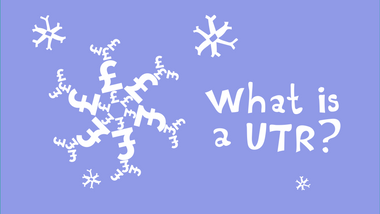The Pros and Cons of Registering my Ecommerce Company for VAT
While most business owners have the misconception that VAT registration is tedious and an additional bill to look after, VAT can also be advantageous to your business.

If you’ve just set up your ecommerce business, congratulations! Now, you can focus on other aspects of the business and improve your bottom line. Did you know that the registration of Value Added Tax (VAT) can also affect your business?
While most business owners have the misconception that VAT registration is tedious and an additional bill to look after, VAT can also be advantageous to your business.
Read on to find out whether VAT is the right option for you.
Do I have to register for VAT?
It is compulsory for you to register for VAT if your ecommerce business's taxable turnover is more than £90,000 based on a 12-month rolling calendar.
If you are based outside the United Kingdom (UK) but are selling products in the UK or to UK customers, you are also required to register for VAT.
If I’m Not Required To Register for VAT, Should I Still Do It?
Even if your ecommerce business is not required to register for VAT, you may still wish to do so. Voluntary VAT registration comes with its own advantages and disadvantages, which we will explain below to help you make a well-informed decision:
Advantages of Voluntary VAT Registration
Credibility
Registering your company for VAT gives an impression of being more credible and established. By doing so, your customers may think that your business is flourishing and way beyond the start-up phase.
Additionally, having your VAT number reflected on your website and invoices will lead potential investors, suppliers and customers to believe that your company is of a larger scale and profitable with a turnover of more than £90,000, which could lead to more business opportunities.
Concentrate on Business Growth
Even if your ecommerce business is at its infancy, you may be thinking of expanding the scale of business. In this scenario, it may be wise to complete your VAT registration so you can concentrate on business expansion without having to worry about hitting the £90,000 threshold.
Once the VAT registration and the accompanying accounting procedures are out of the way, you can focus all your energy on the core business.
VAT can be Backdated
If you volunteer for VAT registration, you are allowed to backdate your registration by up to 4 years. In effect, this means the business can then claim back VAT incurred up to eight years ago on goods still on hand on its first VAT return: by backdating the registration four years and then being able to go back another four years prior to the registration date. If you do so, take note that you will have to provide proof to HM Revenue and Customs (HMRC).
Application and Reclamation of VAT
For the sale of almost any of your product or service, you need to apply VAT. Similarly, for most products or services bought from other businesses, you can also reclaim VAT.
Disadvantages of Voluntary VAT Registration
Stringent admin duties, such as handling VAT returns
While voluntary VAT registration comes with perks, a downside would be having to upkeep strict admin duties, especially when it comes to documenting and recording all VAT receipts and invoices. Additionally, you will also have to file VAT returns every three months. These paperwork are compulsory for all VAT registered companies.
Some customers and clients may not be VAT registered
If your customers and clients are not VAT registered, they will not be able to claim back VAT on your products and services. In other words, your VAT-imposed products or services may be deemed too costly to these customers and clients.
May potentially incur a hefty bill
If the VAT earned from your products and services sold surpasses the VAT you made on other products and services purchased, HMRC has the capacity to hand your business a substantial bill.
How to Register for VAT
We hope the above gave you a better idea of the pros and cons of registering your ecommerce company for VAT.
If you’ve decided to register for VAT, you can simply do so online, which will take around 20 days to process. Alternatively, you could do so by post via postal service, which takes up to 30 days to process. However, you can only register by post if you are:
- An European Union (EU) business distance selling into Northern Ireland
- Importing goods worth over £90,000 from an EU country into Northern Ireland
- Registering a group of companies with different VAT numbers
- Disposing of assets from which you have claimed 8th or 13th Directive refunds on.
Tip
As a general rule, businesses must recover VAT through the VAT return when they are VAT registered in the country where VAT was incurred. If not registered, VAT can be recovered through an EU Refund Claim or 13th Directive procedure (by EU Refund claim we refer to the former 8th Directive). A VAT registration is required when you make taxable supplies in the country.
What Happens after VAT Registration
Once you’re done with registering for VAT, you will have to charge VAT on applicable products and services sold, on both standard rate and reduced rate goods. You are also held responsible for your VAT liability, and should you fail to register when required, HMRC can penalise you and contact the online marketplaces in which you conduct business through. This could possibly lead to your suspension on these platforms and consequentially, the downfall of your ecommerce business.
Grow your Business Without the Stress
We know how stressful it can be to handle a business, but you don’t have to take it all upon yourself.
At Osome, we are always here for you. Work with a dedicated ecommerce accountant. We help you with your filing deadlines, finding reliefs for your company, and arranging documents perfectly.
We also connect directly to all your marketplaces and upload financial statements from there. We then transform them into books, reports, and tax filings. If you sell outside the UK, we help you file VAT there too.







